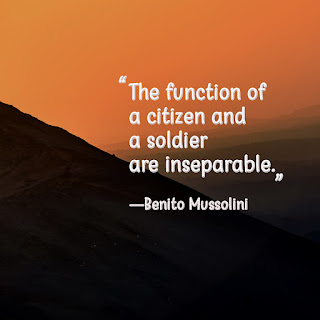"Last night," greeted the moon after saying basmalah and salaam. "I have just taken a little journey to the Land called Bhumi Raksana, and I saw five kind of soldiers in their respective place. But, first thing first, I want you to listen to the following apologue.
Honour, Prudence, and Pleasure, undertook to keep house together. Honour was to govern the family, Prudence to provide for it, and Pleasure to conduct its arrangements.
For some time, they went on exceedingly well, and with great propriety. But after a while, Pleasure getting the upper hand, began to carry mirth to extravagance, and filled the house with gay, idle, riotous company, and the consequent expenses threatened the ruin of the establishment.
So, Honour and Prudence, finding it absolutely necessary to break up the partnership, determined to quit the house, and leave Pleasure to go on her own way, which did not continue long, as she soon brought herself to poverty, and came a begging to her former companions, Honour and Prudence, who had now settled together in another habitation.
However they would never afterwards admit Pleasure to be a partner in their household, hut, sent for her occasionally, on holidays, to make them merry, and in return, they maintained her, out of their alms.
The wants of nature are few: it is the office of reason and heart, to regulate both the taste and the appetite; and those who are governed by her laws, will be enabled to leave their wealth, their health, and their example, rich endowments to their heirs.
All beyond enough is too much; all beyond nourishment is luxury; all beyond decency is extravagance. Intemperance has a smiling and alluring aspect, but a dreadful retinue; consisting of the whole assemblage of diseases, for death has been their cook, and has infused a slow poison into every sauce.
Luxury is to property, what a plague is to health; it is equally contagious, and equally destructive; it is the disease of which not only individuals, but the noblest monarchies, and most flourishing states have died, in consequence of which even the richest cities may be reduced to misery, and the posterity of its citizens become as poor as their earliest ancestors were; but without their continence, industry, or virtue.
Secondly, I want you to know that the instability of mankind, most frequently attach more value and importance to a mere novelty, although it may be much inferior in every quality to that which they before possessed, and which had no other fault than that of having long enjoyed their favour.
So, I saw an Officer of Cavalry, was possessed of an excellent horse, however, it was his whim to purchase another, that was not so good as the first, but which he always attended with the utmost care, providing for him always the best of everything he might want.
'What can be the reason,' said the second horse to the first, 'That our master is more kind and indulgent to me than to you, who are more beautiful, fleeter, and stronger than I am?'
The other made him this answer, 'Well, it is the usage of mankind, who are always more fond of any object of novelty to them, than of such things as are of more value, but are become familiar in their sight; and you yourself, must expect to give place in time to a newer object of attention. Things changed, nothing stays the same.'
At another place, a certain souldier, in time of war, took great pains to keep his Horse well fed and cared-for, and in first-rate condition. When the war was over, the soldier’s pay was reduced, and he allowed his Horse, that had carried him nobly through many a hot engagement, to be used for dragging huge logs of timber, and for hire in many other rough and disagreeable ways. Being thus hardly fed and badly treated, the animal’s strength and spirit fell away. It was not long before the war was renewed, and the Soldier, taking his Horse to himself again, tried, by good feeding and better treatment, to make him into a battle-steed once more.
There was not time for this, however; and the Horse, as his weak legs gave way under him in a charge, said to his master, 'It is too late now to repair your neglect. You have degraded me from a Horse into an Ass. It is not my fault that I can no longer bear you as before. Care defines ability!'
In another location, two soldiers traveling together were set upon by a Robber. The one fled away, the other, stood his ground and defended himself with his stout right hand.
The Robber being slain, the timid companion ran up and drew his sword, and then, throwing back his traveling cloak said, 'I’ll at him, and I’ll take care he shall learn whom he has attacked'” On this, he who had fought with the Robber made answer, 'I only wish that you had helped me just now, even if it had been only with those words, for I should have been the more encouraged, believing them to be true; but now, put up your sword in its sheath and hold your equally useless tongue, till you can deceive others who do not know you. I, indeed, who have experienced with what speed you run away, know right well that no dependence can be placed on your valor. Actions speak louder than words.'
Finally, I examined a trooper was dressing his Horse, he noticed that one of the shoe-nails had dropped out, yet he postponed for the present striking in another nail.
Soon after, he was summoned by sound of trumpet to join his corps, which was commanded to advance rapidly and charge the enemy.
In the heat of the action, the loose shoe fell off, his horse became lame, stumbled, and threw his rider to the ground, who was immediately slain by the enemy.
A well-known proverb warns us, never to leave that to be done tomorrow which may be done today, and the story shews, that even an hour’s delay of a business seemingly trivial, occasioned death."
"That's all I can tell you tonight, O Owl! Every foregoing apologue, has its own moral, but related. Glory be to Allah in all His Majesty. And Allah knows best."
Gently, the moon disappeared, accompanied by a hum,
Now I feel I'm growing older
And the songs that I have sung
Echo in the distance
Like the sound
Of a windmill going round
Guess I'll always be a soldier of fortune *)















